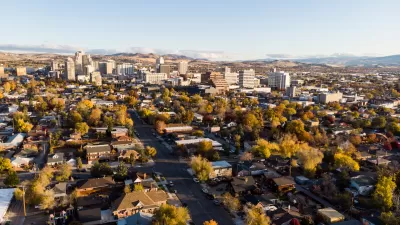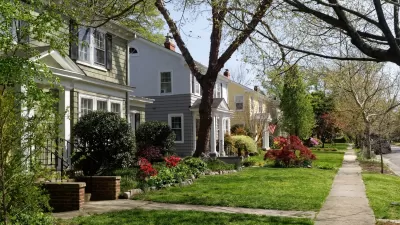A regulation limiting the number and size of ADUs in the Berkeley Hills runs afoul of state law, but supporters say it protects the safety of residents in fire-prone areas.

A state agency has ruled against Berkeley’s restrictions on accessory dwelling units (ADUs) in its hillside neighborhoods, reports Nico Savidge for Berkeleyside, dismissing the city’s claims that allowing two ADUs per lot in the Berkeley Hills would negatively impact resident safety in the event of a fire evacuation.
As Savidge explains, “Berkeley’s regulations allow accessory units to be built throughout the city. But whereas homeowners in the flatlands can build two such units on the same property — both a detached cottage and a ‘junior ADU,’ such as a basement apartment — they are only allowed one accessory unit on properties that lie in areas Berkeley classifies as Very High Fire Hazard Severity Zones.” According to Savidge, “David Zisser, an assistant deputy director for local government relations and accountability at the Department of Housing and Community Development, struck down that reasoning in an Oct. 17 letter to Berkeley Planning Director Jordan Klein,” writing that “the city has not adequately demonstrated that new ADUs will actually impact public safety.” Critics see the restriction as another way for cities to limit new housing construction in some of their wealthiest areas.
Councilmember Susan Wengraf, who represents much of the Berkeley Hills, said that “state regulators are being too inflexible with the ADU law and should have provided more leeway for cities that are at risk from wildfire to limit construction.” Wengraf says she will discuss the issue further before deciding whether to challenge HCD’s decision.
FULL STORY: Berkeley rules limiting ADUs in hills violate state law, housing agency says

Planetizen Federal Action Tracker
A weekly monitor of how Trump’s orders and actions are impacting planners and planning in America.

Congressman Proposes Bill to Rename DC Metro “Trump Train”
The Make Autorail Great Again Act would withhold federal funding to the system until the Washington Metropolitan Area Transit Authority (WMATA), rebrands as the Washington Metropolitan Authority for Greater Access (WMAGA).

The Simple Legislative Tool Transforming Vacant Downtowns
In California, Michigan and Georgia, an easy win is bringing dollars — and delight — back to city centers.

In These Cities, Most New Housing is Under 441 Square Feet
With loosened restrictions on “micro-housing,” tiny units now make up as much as 66% of newly constructed housing.

Albuquerque’s Microtransit: A Planner’s Answer to Food Access Gaps
New microtransit vans in Albuquerque aim to close food access gaps by linking low-income areas to grocery stores, cutting travel times by 30 percent and offering planners a scalable model for equity-focused transit.

This City Will Pay You to Meet Your Neighbors
A North Kansas City grant program offers up to $400 for residents to throw neighborhood block parties.
Urban Design for Planners 1: Software Tools
This six-course series explores essential urban design concepts using open source software and equips planners with the tools they need to participate fully in the urban design process.
Planning for Universal Design
Learn the tools for implementing Universal Design in planning regulations.
Smith Gee Studio
City of Charlotte
City of Camden Redevelopment Agency
City of Astoria
Transportation Research & Education Center (TREC) at Portland State University
US High Speed Rail Association
City of Camden Redevelopment Agency
Municipality of Princeton (NJ)





























